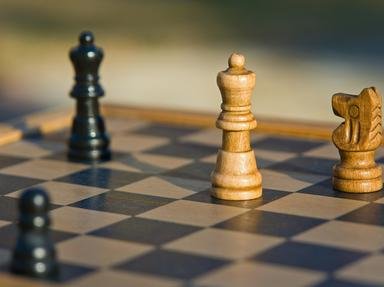Quiz Answer Key and Fun Facts
1. White deliberately touches the knight on g1. Then, White plays Nc3. Black then deliberately touches his own knight on b8, but realizes that White appears to have violated the touch-move rule. Can Black make a claim against White for a touch-move rule violation?
2. White reaches across the board and plays Nc3-b5. White's elbow hits the rook on h1 before touching the knight. Black claims that White should move the rook. What is the ruling?
3. Players must keep score of the game unless they are physically incapable of doing so.
4. White deliberates upon a move. White then calls his mom for advice on how to proceed. Is White in violation?
5. At the beginning of the game, White touches the bishop on f1. Black demands a penalty. How should you rule?
6. White deliberately touches his opponent's pawn on b4 first, but realizes that he can deliver mate by playing Nd5-f6, instead and plays Nf6#. You witness this event, so how should you rule?
7. In a tournament, both players realize that the initial board position was incorrect after five moves. What should be done?
8. Black plays Bb4+, placing the White king in check. White castles kingside by first moving the king to g1 and then, the rook to f1. Is this legal?
9. For the player on move, what should they say before adjusting a piece?
10. White has a tendency to cough, sneeze, bellow and roar before each of Black's moves. This appears to be intentional. What should you do?
Source: Author
christopherm
This quiz was reviewed by FunTrivia editor
WesleyCrusher before going online.
Any errors found in FunTrivia content are routinely corrected through our feedback system.
